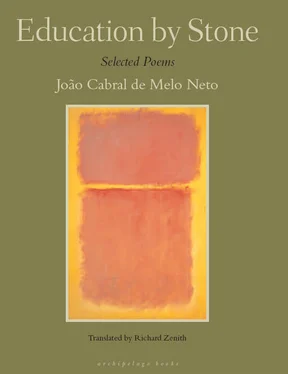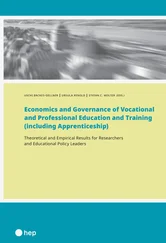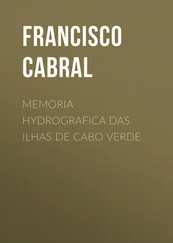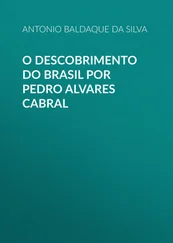Homenagem renovada a Marianne Moore
Cruzando desertos de frio
que a pouca poesia não ousa,
chegou ao extremo da poesia
quem caminhou, no verso, em prosa.
E então mostrou, sem pregação,
com a razão de sua obra pouca,
que a poesia não é de dentro,
que é como casa, que é de fora;
que embora se viva de dentro
se há de construir, que é uma coisa
que quem faz faz para fazer-se
— muleta para a perna coxa.
Renewed Homage to Marianne Moore
Crossing deserts of coldness
which slight poetry will not risk,
she who walked through verse
in prose arrived at poetry’s limit.
She was able to show, without preaching,
by the reason of her spare work,
that poetry is not on the inside
but is, like a house, something outside,
and before one lives inside it
it must be built — this something
one makes to make oneself able,
this crutch for the one who is lame.
A água da areia
Podem a ablução, os muçulmanos,
com areia, se não têm água;
fazem da areia um outro líquido,
eficaz igual no que lava.
A areia pode lavar neles
qualquer espécie de pecado;
na ablução ela flui como a água,
dissolve o mal mais empedrado.
Sandwater
Muslims may perform their ablutions
with sand when there is no water;
they treat the sand as another liquid
just as effective for their washings.
The sand is able to wash
any kind of sin from their souls;
for ablutions it flows like water,
dissolving evils as hard as stone.
No Páramo
No Páramo, passada Riobamba,
a quatro mil metros de altura,
a geografia do Chimborazo
entra em coma: está surda e muda.
A grama não é grama, é musgo;
e a luz é de lã, não de agulha:
é a luz pálida, sonolenta,
de um sol roncolho, quase lua.
In the Páramo
In the Páramo, past Riobamba,
some fourteen thousand feet high,
the geography of Chimborazo
goes into coma, deaf and mute.
The grass isn’t grass, it’s moss,
and the light has no needles, it’s woolen:
it is the pallid, somnolent light
of a castrated sun, almost moon.
A cama e um automóvel
Morrer é andar de automóvel:
tem todas as marchas, tem breques,
e o motor que vai mansamente
pode que sem mais se acelere
para cumprir o diagnóstico
de algum doutor acelerado
que previu a morte a tal hora,
ela, que se é certa é sem prazo.
Se demora, a morte é a viagem
de automóvel liso na estrada:
a cama do doente é o automóvel:
viaja sem chegar, sem mapas.
The Bed and the Car
Death is like riding in a car:
it has various gears, and brakes,
and the softly running motor
can unexpectedly accelerate
the fatal diagnosis of a doctor
who spoke too quickly when he set
a day for death, which, even if
imminent, obeys no schedule.
When it delays, death is an outing
on the highway in a smooth-riding car,
the sickbed is the car, traveling
without maps, and without ever arriving.
Direito à morte
Viver é poder ter consigo
certo passaporte no bolso
que dá direito a sair dela,
com bala ou veneno moroso.
Ele faz legal o que quer
sem policiais e sem lamentos:
fechar a vida como porta
contra um fulano ou contra o vento;
fazer, num dia que foi posto
na mesa em toalha de linho,
fazer de seu vivo esse morto,
de um golpe, ou gole, do mais limpo.
Right to Death
To live is to be able to carry
a passport in one’s pocket
that confers the right to get out,
with a bullet or a slow poison.
It makes it legal to act
without policemen or laments:
to shut life as one shuts a door
to the wind or an unwanted visitor;
to make of one’s life (on the day
this passport is placed
on the linen-covered table) a corpse,
with a clean sharp bang, or swallow.
Questão de pontuação
Todo mundo aceita que ao homem
cabe pontuar a própria vida:
que viva em ponto de exclamação
(dizem: tem alma dionisíaca);
viva em ponto de interrogação
(foi filosofia, ora é poesia);
viva equilibrando-se entre vírgulas
e sem pontuação (na política):
o homem só não aceita do homem
que use a só pontuação fatal:
que use, na frase que ele vive
o inevitável ponto final.
A Question of Punctuation
No one rejects man’s right
to punctuate his own life —
to live as an exclamation mark
(they say he has a Dionysian heart),
or to live as a question mark
(formerly philosophy, now poetry),
or to balance oneself between commas
without final punctuation (politics);
man only rejects that a man
himself write the fatal mark —
affixing to the sentence of his person
the inevitable period, period.
from Crime na Calle Relator / Crime on the Calle Relator 1987
O ferrageiro de Carmona
Um ferrageiro de Carmona
que me informava de um balcão:
“Aquilo? É de ferro fundido,
foi a fôrma que fez, não a mão.
Só trabalho em ferro forjado
que é quando se trabalha ferro;
então, corpo a corpo com ele,
domo-o, dobro-o, até o onde quero.
O ferro fundido é sem luta,
é só derramá-lo na fôrma.
Não há nele a queda-de-braço
e o cara-a-cara de uma forja.
Existe grande diferença
do ferro forjado ao fundido;
é uma distância tão enorme
que não pode medir-se a gritos.
Conhece a Giralda em Sevilha?
Decerto subiu lá em cima.
Reparou nas flores de ferro
dos quatro jarros das esquinas?
Pois aquilo é ferro forjado.
Flores criadas numa outra língua.
Nada têm das flores de fôrma
moldadas pelas das campinas.
Dou-lhe aqui humilde receita,
ao senhor que dizem ser poeta:
o ferro não deve fundir-se
nem deve a voz ter diarréia.
Forjar: domar o ferro à força,
não até uma flor já sabida,
mas ao que pode até ser flor
se flor parece a quem o diga.”
The Ironware Shop in Carmona
In an ironware shop in Carmona
the man at the counter answered me:
“That thing there? It’s cast iron,
made by a mold, not the hand.
“I only work in forged iron,
the kind of iron that’s wrought;
body against body I subdue it,
bending it into what I want.
“Cast iron requires no struggle:
you just pour it in the mold,
without any of the face-to-face
or arm-wrestle of a forge.
“There’s a vast difference
between cast iron and forged;
the distance is so great
that no shouting can bridge it.
“Do you know the Giralda in Seville?
No doubt you climbed to the top.
And did you notice the iron flowers
in the vases on all four corners?
“Well, they are made of forged iron.
Flowers created in another language.
Not at all like cast-iron flowers
molded after those of the fields.
“Let me give a bit of advice
to you whom they call a poet:
iron should never be cast,
nor your voice be diarrhea.
“Forge your iron; shape it by force,
not into a flower you already know
but into what can also be a flower
if you think it is and say it is so.”
A Few Matadors
Manuel Rodríguez, “Manolete,” perhaps the most legendary matador of the twentieth century, was born in Córdoba in 1917 and died, gored, in 1947.
The Word Silk
Читать дальше










